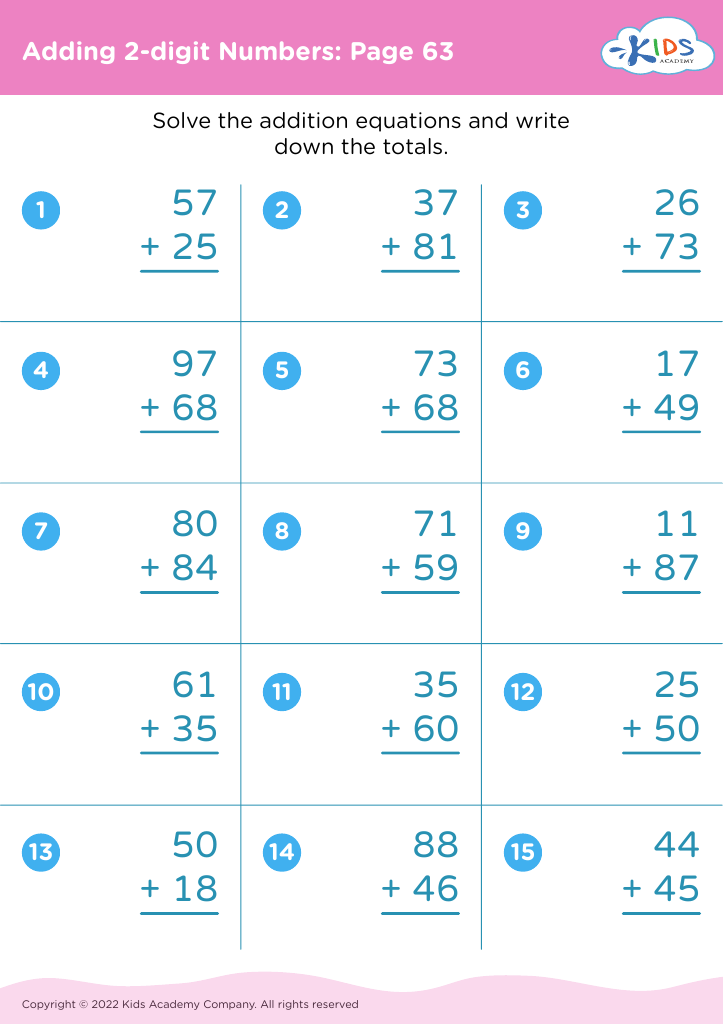Recognizing Patterns Adding 2-digit Numbers Worksheets for Ages 6-8
3 filtered results
-
From - To
Improve your child's math skills with our engaging "Recognizing Patterns Adding 2-Digit Numbers Worksheets" designed for ages 6-8. These interactive worksheets help young learners cultivate a strong foundation in addition by exploring patterns in numbers. Your child will practice recognizing sequences and relationships, making the addition of 2-digit numbers more intuitive and fun. Each worksheet is aligned with educational standards, promoting critical thinking and problem-solving abilities. Perfect for both classroom and home use, our resources encourage a love for math while boosting confidence. Start your child's math journey today with our delightful and educational worksheets!
Recognizing patterns in adding 2-digit numbers is crucial for young learners aged 6-8 as it builds the foundation for essential math skills. When children identify and understand patterns, such as the relationship between tens and units, they become more proficient in calculations. This skill not only enhances their ability to add more quickly but also deepens their number sense, which is vital for higher-level mathematics.
Moreover, recognizing patterns allows children to develop problem-solving skills. They learn to anticipate outcomes and make connections, fostering analytical thinking. This cognitive development is essential across subjects, promoting a more holistic educational experience.
Teachers and parents should care about this skill because it boosts children's confidence. Mastery of addition through pattern recognition also creates a positive classroom and home environment, where children feel empowered to express curiosity and explore mathematical concepts further.
Finally, early mastery of adding 2-digit numbers through recognizing patterns prepares children for more complex arithmetic operations. This lays a solid groundwork for their future education, significantly influencing their attitudes towards math as they progress. Engaging children in pattern recognition not only makes learning enjoyable but also equips them with critical skills needed for lifelong learning.




















